SU Elections 2021 Q&A: Faculty of Arts Students’ Council and GFC Candidates Part II
Meet some of the arts students running for Student's Council and General Faculties Council.
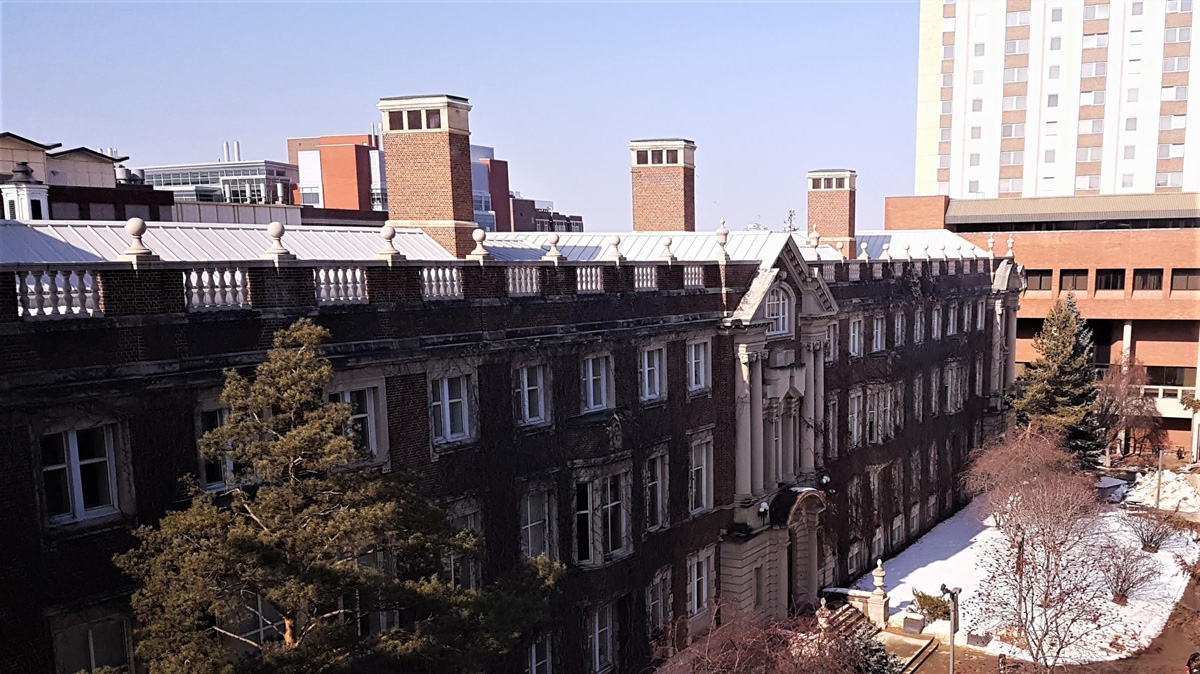 Haley Dang
Haley DangThis article is part six of a seven-part series.
Although the election for Students’ Union executives is over, it’s now time to for students to vote for Students’ Council and General Faculties Council (GFC) representatives.
On March 17 and 18, undergraduate students will be voting for both the Students’ Council councillors and GFC representatives for their respective faculties.
Students’ Council oversees the Students’ Union in terms of its policies, financials, and mandate. It consists of 40 councillors.
GFC is the highest academic decision making body at the university. Out of its 159 members, there are around 40 undergraduate representatives.
To help students get to know the candidates, The Gateway interviewed them to learn more about how they would represent students and what issues they hope to address in these roles.
This is part two of Q&A’s with arts candidates. The first article can be found here.
Responses have been edited for brevity and clarity.
Arts Candidates
- Nicole de Grano, a third-year political science and women’s and gender studies student— running for Students’ Council and GFC.
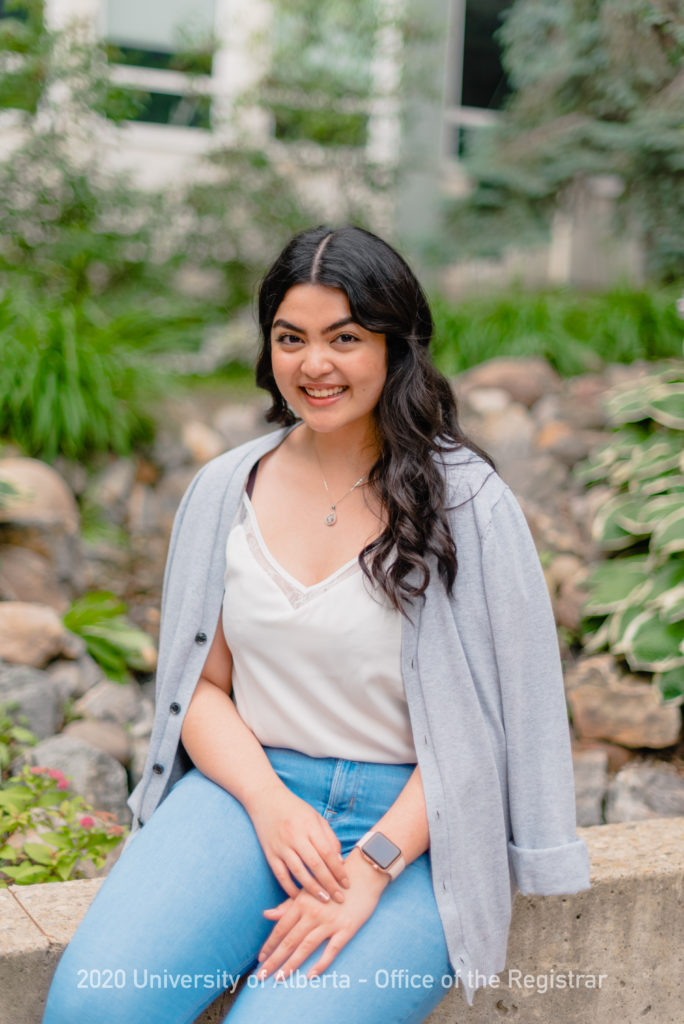
- Charles Blondin, a second-year political science student — running for Students’ Council.
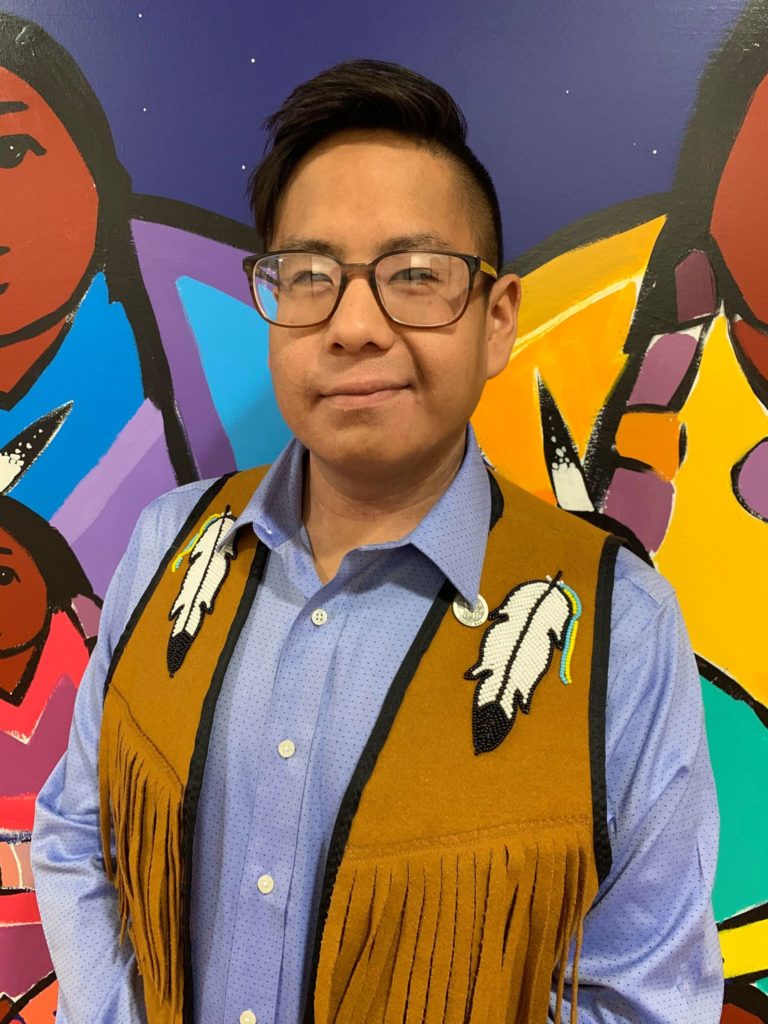
- Julia Villoso, a second-year psychology student — running for Students’ Council and GFC.
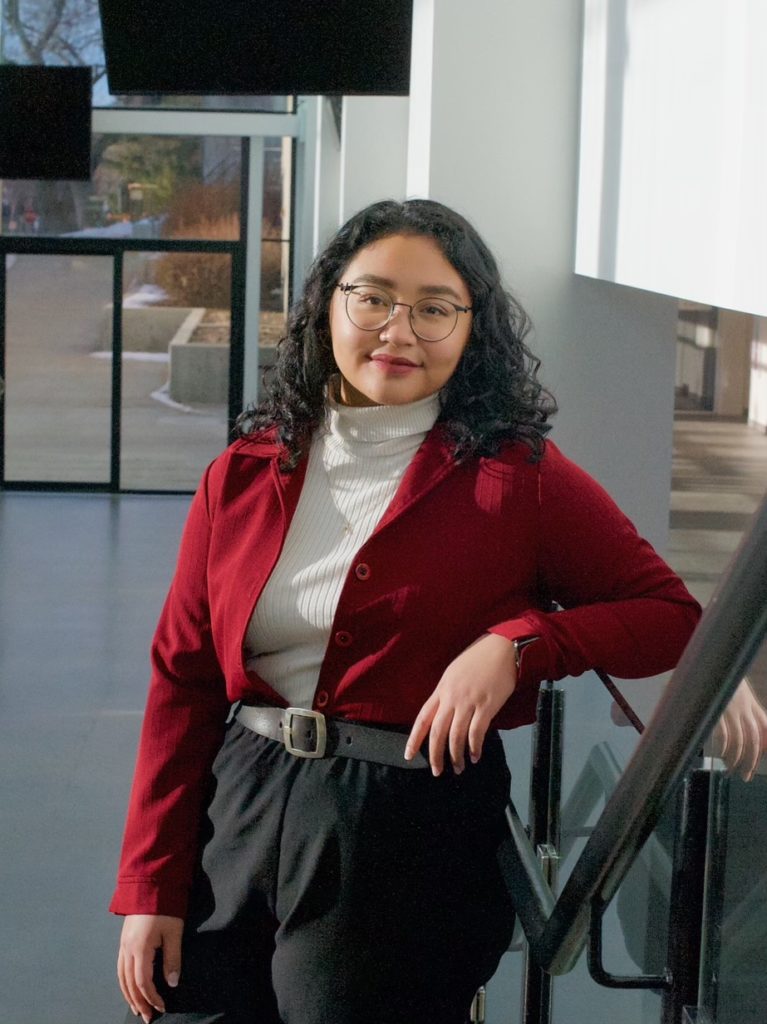
- Lisa Glock, a first-year political science student — running for Students’ Council and GFC.

- Breanna Palmer, a third-year women’s and gender studies and political science student — running for Students’ Council.
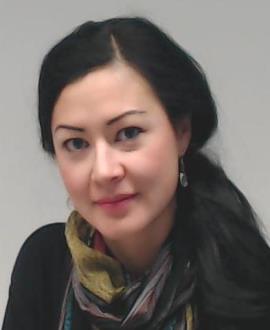
Why are you running for Students’ Council/ GFC?
Nicole de Grano: I’m running for Students’ Council again this year because I believe that it is crucial to have a strong student voice in governance at every level. From how we lead the Students’ Union’s advocacy, to the recommendations GFC puts forward to the Board of Governors, strong student voices are needed, as well as proper support to form an informed student body. It is my goal to create an informed, active and strong voice for students in my faculty and beyond. I am not afraid to take the lead in this endeavour, and I will raise my voice to point out the issues that are arising in the faculty. Further, I want to be the person that not only voices students’ needs, but also amplifies the voices of the people I represent. I know that this position is more than just me speaking to what I know, and I want to be in this position so that I can empower the students around me to also raise their voices.
Charles Blondin: I am running for Students’ Council because I want to provide a strong and passionate voice for students who may feel that they have no say in their university governance and advocate for better financial support for all university students, as well as seek additional external sources of funding for the Students’ Union. I want to listen and learn about the issues that are most important to arts students as well as hear their envisions for the Student’s Union. I also believe that there is a need for strong Indigenous representation within council that is able to speak on behalf of the needs of not only Indigenous students but all arts students respectively as our faculty is becoming increasingly more diverse, and I believe that my Indigenous background will help me with representing the needs of such a diverse faculty.
I also find that there is a need for someone who is willing to say what needs to be said, especially given this past year where Students’ Council and General Faculties Council relationship had eroded to some degree. Furthermore, I feel that my previous experience as an open studies councillor and on the Students’ Union Council Administration Committee member, along with leadership skills I had developed while serving at Royal Military College of Canada (RMCC), has prepared me for a leadership role within council. Which is why if I am chosen by arts students to represent them in Students’ Council, I will stand for chair of the Council Administration Committee so that I may be able to oversee and assist the Students’ Union committees in their work for the student body. I truly believe that a strong and unified council can effectively advocate for a better student experience at the University of Alberta.
Julia Villoso: I am re-running for Students’ Council and GFC, because through my one year in the role already, I’ve learned so much about student governance, and its importance on campus. Students may not realize this, but a lot of the decisions made on these two governing bodies significantly effect their lives whether it is through academic restructuring, making the U-Pass available for all U of A students, or the hiring a sexual violence prevention coordinator. I am running, because being an arts councillor, or just any councillor for that matter, gives one the ability to truly make change and advocate for students. This role enables me to be able to amplify the voices of my constituents and do something about the problems I see that students are facing on campus. I’ve already done some work in my time in this role, but I believe my work is far from over
Lisa Glock: I am running for Students’ Council and General Faculties Council because I believe that I can make a positive impact on the lives of students at the U of A. I have always been interested in student governance and know that there is a lot of work to be done at the U of A in terms of sustainability and mental health support. I want to be a voice for all students as we work together to reach goals that create positive long-lasting change for now and the future. I know I have the work ethic and communication skills to achieve great things once elected. I know what it means to be a part of a great team and how to make real positive changes in the lives of others. I want to bring that to the Students’ Council and GFC.
I believe that student mental health must be taken into account in every decision that is made at the U of A. I am running as an arts student for arts students — I am here to amplify your voice and ensure that you get all the support that can be provided to you by the student governance. I want to increase the ease of accessing existing mental health resources and bring about new ones that will be an aid to all. Campus sustainability is an issue that is incredibly important to me and I hope to move us all towards a green future. A positive culture around mental health and a clear path towards a sustainable future are within reach. Like so many of us, I spent my first year of university doing online school because of COVID-19 and I want to make sure that the next years of our time together at university are ones we can look back on with pride. We can leave it even better than we found it and I’m committed to our collective success.
Breanna Palmer: I am running for Student’s Council this year because I began my university experience participating in the Students’ Union as an open studies councillor. Now that I am in my final year of arts, I think it is important to also participate as an arts Councillor and to ensure that the lived experiences of arts students are heard. Arts is normally the first to be cut in terms of funding for programs and services in the community, and it is important to understand larger issues, not just on campus, but more broadly in our communities.
Can you explain your platform concisely?
de Grano: My platform includes four main points which are enhancing the transparency of council and staying accountable to my constituents, fighting for Equity, Diversity, and Inclusion (EDI) within council committees, boosting student rights, and enhancing student connections to campus and resources in an online environment. Now more than ever, it is so important that information about Students’ Council is accessible and easy to find. It’s important that students know what their representatives are doing, and that students can have a place to give their feedback quickly. Being online, this can be done through the use of social media, and I will make it a mission to create an Instagram account for council so that students can better understand and see first-hand what we do. Further, I want to fight for EDI and student rights, and put those at the forefront of every decision we make on council, and every committee that I can be a part of.
With the Charter of Student Rights only being recently adapted, I also want to ensure that students’ rights are protected and emboldened. Lastly, I want to make sure that students have meaningful access to campus through student clubs, as well as having easy access to resources online. I will fight to make sure that these resources are representative of all students, and that they are of high quality and actually meeting the needs of students.
Blondin: My platform is concentrated around three main goals. First, [I want to] ensure that each of the last remaining Aboriginal Relations & Reconciliation Committee (ARRC) recommendations are fulfilled as well as making sure the intent of the agreement is followed. Once the recommendations are completed, I would like to advocate for the Students’ Union to continue consultation initiatives and further supports that strengthen, as well as protect, our Indigenous community on campus. Second, [I want to] conduct a formal committee review of the Students’ Union’s non-instructional fees to determine if they are necessary, with public consultations to understand how students feel about these fees and if they would rather see them go somewhere else. Lastly, [I will] conduct a holistic review of current council standing orders, bylaws, political and operating policies, and the structure of Students’ Council, in addition to the standing orders for the Council Administration Committee, to determine if student governance is accessible to all and running effectively.
Villoso: My platform focuses on four main points. Firstly, I want to work towards establishing a more accountable Students’ Union, through continuing my work on the Audit Committee and making sure promises that were made are followed through. Secondly, I want to promote more student engagement within student governance, and join the Nominating Committee to be part of the process of recruiting students for roles within the Students’ Union. I want to further advocate for and promote EDI on all levels of governance, and being a woman of colour myself, I know how important it is to have representation and EDI always present within the Students’ Union’s advocacy. Lastly, I want to work towards a more sustainable campus and continue my work with the Sustainability and Capital Fund to bring students’ projects and ideas into fruition.
Glock: I believe that student mental health must be taken into account in every decision that is made at the U of A. I am running as an art student for art students and I am here to amplify your voice and ensure that you get all the support. Campus sustainability is an issue that is incredibly important and I hope to move us all towards a green future by investing in energy-saving projects and looking into green energy modifications such as solar power. The implementation of a bike-share program across campus could also help in this regard. I would also advocate for the expansion of mental health services on campus such as support groups, speaker sessions, and the integration of mental health awareness into the curriculum
Palmer: My platform is such that I am an active member of my communities, both on and off campus, and I am trained by the university, and more specifically as women’s and gender studies and political science major, to think and participate critically in the world, advocating for and with the community, while understanding varied, complex, and intersecting experiences. I think that it is important to create equitable space for a diverse collective, and to ensure that those who need support in terms of physical, psychological, spiritual or otherwise, have access to the wide range of services that are available through the Students’ Union and campus more broadly.
For Students’ Council Candidates: what is the biggest issue you see facing the Students’ Union and how would you want it addressed?
de Grano: I find that a huge issue is the disconnect that students feel from the Students’ Council. It’s so hard to get involved and feel like your voice matters when you can’t see people taking action. I think it’s also so hard to get into governance, especially in an online setting, because you may not know where to start. There’s an ongoing cycle of alienation when it comes to students and Students’ Council, and I know this from experience. I know that students don’t know what happens during council meetings and the information is so hard to find on the Students’ Union website that it can become so demotivating to even try and seek it out because the website isn’t always updated. I want students to feel connected to council because there are going to be some big changes happening, and I want to be the bridge that connects their voices to the Students’ Union executives. I want to create an Instagram account for council that provides updates on any important issues that arise in council meetings, and make it so that this information is easy to find. It’ll be a framework that students are more familiar with and it can be a way to provide quick feedback to your elected representatives.
Blondin: With the larger than expected budget cut from the provincial government to the University of Alberta and the seven percent increase in tuition, I believe the cutting of services alongside raising the cost of tuition, residence and meal plans will have a profoundly negative impact on students across the university. There is an expected increase in the amount of fees in addition to a reduction of instructors which will surely have an impact on the quality of education and the student experience. These are major challenges the next council will have to face, and I would really like to see the Students’ Union exploring alternative sources of revenue and funding from outside organizations and governments. The University of Alberta is an internationally renowned institution and is continually ranked one of the top universities in the country, so there must be outside sources of funding that will want to help students facing a situation they have no control over. Finding external sources of funding may be difficult in the current economic climate, but when our own provincial government equates unjustifiable cuts to a question of “efficiency”, it is worth, and even necessary, to explore alternative methods of protecting our students financially.
Villoso: The biggest issue right now is the budget cuts and the rise of tuition. These cuts are affecting students now more than ever, on top of the pandemic. The Students’ Union and GFC have to find ways to be able to navigate this, and I want to make sure that in terms of the allocation of funds, students are always the priority. We are often getting the short end of the stick, and it’s important that students are getting the support they need. In addition, another large gap in the Students’ Union’s support for students is accessibility to services. Students are paying thousands of dollars in fees, and they need to be able to truly access the services that are not only funded by them, but made for them to utilize as well. I want to be able to do as much work as I can as a councillor to lessen this gap between students and the Student’s Union, and make these services as accessible as I can in my position.
Glock: The biggest issue facing the students union will be bouncing back from the effects of COVID-19 and dealing with the university’s budget cuts. There needs to be some serious prioritizing done and I believe that students well-being, especially their mental health, should be the thing that drives all decisions.
Palmer: The biggest issue facing the Students’ Union is inter-dynamic relationships between industry, government and academics. To ensure that the student body knows what is happening in their university, especially navigating global economic crisis, a mental health epidemic, and a global COVID-19 pandemic, the Students’ Union’s role is to work collectively and cohesively to ensure the best experience for students and all involved, regardless of location. I think in working as a team through limits and barriers are important aspects of understanding locations, and so addressing this issue will take a great deal of teamwork, respect and professionalism.
For Students’ Council candidates: what is an issue you see facing arts students specifically and how would you want the SU to address it?
de Grano: I have many concerns for the faculty of arts in the process of academic restructuring. The faculty may have to redefine itself, and I want the Students’ Union’s advocacy to be centred on maintaining the integrity and quality of the faculty through this change. I want to make sure that the Students’ Union vice-president (academic) and president take into account the needs of students and push hard for this at every level.
Blondin: I believe arts students will be concerned with the departmental restructuring of the faculty that was proposed in the beginning of the term, as change can be stressful in addition to the raising tuition and fees that all students will face in the next term. Although the Students’ Union cannot prevent departmental restructuring, I would like to see the Students’ Union advocate for departmental associations to remain intact, as they are important means of fostering communities within the faculty.
Villoso: The biggest issue arts students are facing at the moment is lack of support. Arguably with the reality of how some degrees are designed, arts has been one of the faculties who have been hit the hardest in this pandemic. From drama majors to music majors, it has been super difficult to navigate through their courses in this pandemic. It is important to make sure that the Students’ Union is doing their best to support art students when needed. The Students’ Union needs to be doing consultation and check-ins year round on different Faculty Associations (FAs), to be able to see if and when they need support and to provide that for them. This support has to be constant throughout the year, and not just during election season. It is important that FAs and students as a whole are being seen, heard, and well-represented by their Students’ Union. Hopefully with my future role in OASIS, I will be able to have first hand knowledge of all the different perspectives of arts students, and I will also make it a priority to provide my constituents with updates and avenues in which they can reach out to me for support.
Glock: Many students in the arts field feel that their degrees may not be of much use when they graduate. I think this is a huge problem because it contributes to feelings of dread and uneasiness for many students. Since my campaign is focused heavily on improving the mental health of students on campus, I believe addressing this issue is critical. I think that speakers and workshops on how to apply your degree in the future need to be more specific to each program, not only arts in a broad sense.
Palmer: In the recent restructuring of the university, women’s and gender studies was an area that remained in arts. However, dance was re-organized from the faculty of kinesiology, recreation and sport to the college of medicine, and then into campus recreation. While interdisciplinary studies draws from a whole host of disciplines, making adjustments in organizations means re-orientation and re-organization in how one comes to think about a discipline. For example, in terms of sustainability, accessibility and economics, issues facing women and LGBTQ2S+ communities are disproportionate, let alone for those with disabilities. Considering these locations in the discussion is critical and I intend to ensure that these locations are part of the discussion.
For Students’ Council candidates: how will you make sure to represent the needs and concerns of your faculty to Students’ Council?
de Grano: I want to make sure that I’m representing my faculty loudly and accurately. It’s important that our voices are heard, there is no denying that, but it is even more important for the issues I raise to be accurate to the needs of the students I represent. To do this, I will maintain weekly office hours throughout my whole term, as well as meetings by appointment to make sure that students have a space to voice their thoughts, and know that they are being listened to. Furthermore, I will establish an Instagram account for myself as a councillor that will provide a place for quick feedback to be given from students, and as an alternative space for students who may not feel as comfortable with one-on-one meetings. Further, I want to create more relationships with incoming executives in our faculty association and department associations. Having created relationships with executives in Organization for Arts Students and Interdisciplinary Studies (OASIS) from last year to understanding the needs of general arts students, I want to create even more relationships and understand the needs of specific departments this year. After collecting this input, I will make sure that I raise any and all concerns during council meetings and in any committees where it is relevant.
Blondin: If I am given the opportunity to represent faculty of arts students in Students’ Council I would be sure to make myself available to meet, whether online or in-person if we get to go back to campus, and discuss what they may need or want to see the Students’ Union doing better. I would also make sure to be involved and participate with campus and faculty activities to be publicly accessible and engage with students. In addition, I would get in touch with department associations and our faculty association OASIS to get an idea of what issues are important to them as well as their members, while also discussing how I can work with them so that we may both provide the best service to arts students. Moreover, I am willing to listen to each arts student about issues that are important to them.
Villoso: To ensure that I represent the needs and concerns of my faculty, I will regularly consult with OASIS and departmental associations for their perspectives and feedback on important matters at council. I also think it is integral that students themselves are able to have their voices heard. I will do this by conducting weekly office hours and utilizing social media as two avenues that students can utilize to have their wishes and worries heard.
Glock: I am not afraid to speak my mind and I am not afraid to have a different opinion than others. I will represent my faculty’s needs and concerns directly and honestly. The Students’ Union is similar to a union that you might have at work and I want to see this point of view emphasized. I want to make it obvious that the Students’ Council and GFC are advocating for your rights. These groups need to lobby for key issues that you care about. If you have a concern or something you want addressed, you should be able to directly talk to your representative and trust that they will make your voice heard and I plan on fulfilling that promise.
Palmer: Creating accessible ways to communicate and to ask for feedback are some first steps, and I would adjust based on the nature of responses or needs that arise.
For Students’ Council candidates: how will you ensure SU executives remain accountable?
de Grano: Only two of the races for Students’ Union executives this year were contested, which makes it even more important to hold them accountable to the student body. I think holding them accountable means that I am always keeping my door open to listen to students and understand their concerns, while also making sure that I am building relationships with the executives that make it easier for there to be a feedback loop between all of us. I want to be having meetings with the Students’ Union executives anytime new issues arise and make them hear exactly what my constituents are saying. Further, I want them to be heard during council meetings as well, and ask them for updates about their promises to be made available on minutes that students can then access and provide their feedback on.
Blondin: I would make sure the Student’s Union executives remain accountable by meeting with each of them frequently, so that we may be able to discuss how they are doing and if I could help them in my capacity as a councillor. I will review their platforms and upon our first meeting. I would really like to discuss how we could both work together to ensure they succeed in their respective roles, while keeping in mind their responsibilities to the student body. If I am selected as chair of the Council Administration Committee, I would be sure to bring up any issue to the Executive Committee with respect to their actions.
Villoso: I think the best way to keep executives accountable is to have good working relationships with them. It is important that councillors regularly meet with them in order to discuss their projects and platform points and how they plan to implement them. It is integral that a safe environment is created within council, so that we can foster these relationships in which all parties can be respectful of one another, but also not be afraid to say what is on your mind.
Glock: Transparency. It is incredibly important that the average student knows what their representatives are doing for them I will always be available to answer any questions that students may have. The meetings should be summarized… and if students have questions they should receive clarification.
Palmer: I think attendance is important, but also being able to have enough time and capacity to critically discuss issues that are relevant to campus life and to issues facing students.
For GFC candidates: what do you see as the largest academic issue facing students right now and how would you like GFC to address it?
de Grano: I find that the biggest issue right now is the budget cuts and how this translates into academic restructuring. These cuts have shown how delicate our structures are within the university, and have greatly impacted the quality of our education and the quality of resources we are able to provide. It has shown us that the university will have to make serious adjustments through restructuring in order to be more efficient, but has also shown how easy it is for the university to let go of student concerns in order to complete a process. I want to see GFC address these budget cuts with a lot more vigour because at every meeting it takes at least an hour just to get the minutes approved. I want GFC to use governance structures to actually facilitate governance, and I want to be part of the solution for this. GFC needs to focus more on the work it will do to ensure that students will still be provided with a quality education while having to cut back. We need to be able to actually get to agenda items within the scheduled time frame and be loud when it comes to representing our perspectives.
Villoso: Obviously I think one of the largest academic issues students are facing right now is academic restructuring. Since the decision has been made already, it is important that we as an institution go about this process in the most correct and efficient way possible. Many students are being drastically affected by this, and especially with uncertainties from both Campus Saint-Jean (CSJ) and Augustana. It is important that student representatives are accurately voicing the concerns and perspectives of different students. Another large academic issue that students are facing right now is online proctoring. The software that many professors use is discriminatory and violates the privacy of many students. There is already ongoing advocacy in this realm, and I hope that GFC can realize the great disadvantages of using these proctoring programs.
Glock: The largest issue facing students are the changes that will come with tuition increases and budget cuts. This will disproportionately affect students from lower income houses. The GFC needs to recognize this and take steps to make life easier for these people. One simple first step is making schedules more flexible for those students who are financing their education alone.
For GFC candidates: How will you ensure the student voice is heard at GFC?
de Grano: GFC has been overwhelmingly filled with the voices of professors and university administrators, and it’s quite a daunting space. In my experience, the student voice in GFC sometimes has to be limited to one speaker because there’s so little time left to hear students speak. When we do speak, what we say is also ignored or not taken seriously, and I want to ensure that the student voice at GFC is taken seriously by taking more time to meet in a GFC Student Caucus. I’m pretty sure that current Students’ Union vice-president (academic) David Draper introduced these meetings this year and I think they are vital to getting the student voice heard. I want to use these sessions to create powerful statements for students and collaborate with other student representatives to formulate plans for each GFC meeting to make sure that students are no longer silenced and ignored.
Villoso: It is super important in these spaces that you are not afraid to speak and take up space, especially when you’re in these positions where you’re representing students. At GFC, I will make sure to do just that. When elected into these positions, you are being put there for a reason, and it is important to keep that in mind when continuing into your term. Students have always been and will always be my priority. I will speak on issues that effect students and ensure that students are being accurately seen and represented in this space.
Glock: The student voice will be heard at the GFC because I will speak with their voice. I am an average first-year student grateful to be accepted and ready to work hard for my degree. I am ready to represent the student voice because I know what it is like to be silenced and I refuse to allow my fellow students to suffer that fate. Together we will be heard and make it known what we want to be done.
For GFC candidates: What does collegial governance mean to you and why is it important for students?
de Grano: Collegial governance, to me, means representing students and keeping in mind their needs and their futures. It’s a key aspect of the university experience because it’s the way in which the university will receive feedback and provide solutions to our needs. Collegial governance is the space where students have power to create change in the institution, even if it may be small. It is important for students because it’s their university experience on the line in governance. It’s the decision making process that will dictate what they’re going to experience on a day-to-day basis and I believe that I can be a strong advocate within this space to make sure that students aren’t just on GFC, but students are represented fulsomely on GFC.
Villoso: Collegial governance is crucial in institutions like the university. It represents collaboration, mutual respect, and meaningful consultation at our institution. GFC, in and of itself, is super important in ensuring that students voices are heard. By enabling students, non-academic staff, and professors to be able to talk and discuss at the same table really opens this sense of mutual understanding and respect. This ensures that students voices are truly being considered and taken into account when it comes to making large decisions that will in the end, effect them greatly.
Glock: To me, collegial governance is representative of the university community. At its best, it is an ideal of togetherness working towards a brighter future. As students, we have a responsibility to each other. We should be there for each other, ensuring that we all succeed as a collective. You should be able to talk to your representatives for help and advice and they should be providing you with accesses to resources that you need. The GFC should ensure that you are provided with assistance, whether it be involving finances, mental health and well-being, accommodation or academic support.
Fun Question 1: If you had to eat at one of these SUB vendors for the rest of your life, which one would you choose?
de Grano: Filistix.
Glock, Blondin, Villoso: Edo.
Palmer: Marco’s Famous.
Fun Question 2: What quarantine hobby have you picked up?
de Grano: I’m cool now and learned how to skateboard!
Blondin: Lately I have been getting into photography.
Villoso: Since quarantine has started, I’ve started actually getting around to playing some video games and have recently finished playing Life is Strange!
Palmer: I’m a dancer for life, even over Zoom and virtual performances!




